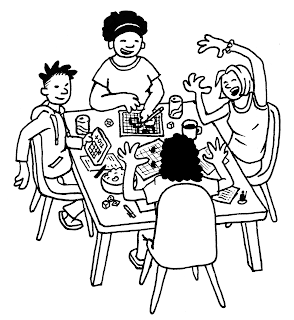Dungeon Crawler Carl makes me want to be the dungeon AI

⚠️ Spoiler warning ⚠️ This is an un-edited rant with spoilers for the entire Dungeon Crawler Carl series that will only make sense if you've read Dungeon Crawler Carl. My latest obsession Dungeon Crawler Carl has been my latest obsession since December. I'm at book 6 right now. As a GM, of course I immediately get excited about running my own season of Dungeon Crawler World. As a game designer, my hands are itching to make a game out of it. I know an official game is coming. But I don't want to wait. And I don't trust official IP games to be good. What are the odds that they'll make the game exactly the way I want it? There are infinite choices to make, so the odds should be infinitesimal... right? At least that's how I feel about IP games. Sign up to my newsletter to follow my latest projects. Setting flavour So let's dig in. I want this game to be a future season of Dungeon Crawler Carl, taking place after the events in the books. I'm going to assume D...
%20(1).png)




